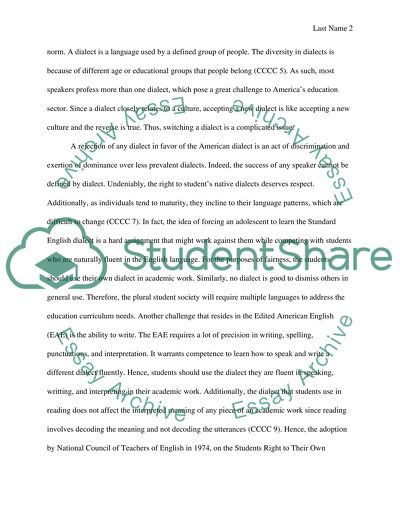Cite this document
(“Students' Rights to Their Own Language Essay Example | Topics and Well Written Essays - 1250 words”, n.d.)
Retrieved from https://studentshare.org/english/1444413-students-rights-to-their-own-language
Retrieved from https://studentshare.org/english/1444413-students-rights-to-their-own-language
(Students' Rights to Their Own Language Essay Example | Topics and Well Written Essays - 1250 Words)
https://studentshare.org/english/1444413-students-rights-to-their-own-language.
https://studentshare.org/english/1444413-students-rights-to-their-own-language.
“Students' Rights to Their Own Language Essay Example | Topics and Well Written Essays - 1250 Words”, n.d. https://studentshare.org/english/1444413-students-rights-to-their-own-language.


